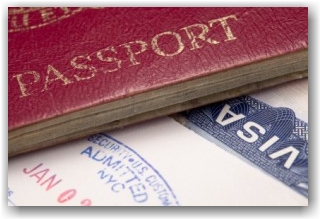H-1B Visas – The Job Description and Degree Requirement
Thursday, January 29th, 2015It’s almost that time of year again for H-1B filing season FY 2016 (commencing April 1, 2015), and it’s not too early for employers to be discussing hiring needs with their management team and assessing where in the organization they wish to sponsor H-1B professionals, and identifying potential candidates that they may want to sponsor for H-1B status. This could include, for example, recent graduates employed pursuant to F-1 Optional Practical Training, foreign nationals in TN status that the company may wish to sponsor for permanent residence, and candidates in L-1 status working for other employers or in some other non-immigrant classification who would need to change their status to H-1B in order to extend their stay and accept new employment.
The H-1B job offer and the job description must be for a specialty occupation that requires a minimum of a bachelor’s degree or its foreign equivalent.
What is the definition of a specialty occupation? A specialty occupation requires the theoretical and practical application of a body of specialized knowledge along with at least a bachelor’s degree or its US equivalent. For example, architecture, engineering, IT, mathematics, physical sciences, social sciences, medicine and health, education, business specialties, accounting, law, and the arts are considered specialty occupations.
Small to medium-size companies are frequently asked to justify why the position requires someone with a bachelor’s degree and to explain, through various types of evidence including organizational charts, examples of work being produced, the education of previous employees in the position, etc., why their business is more unique than other similar businesses in their industry that they would require a candidate with a bachelor’s degree in a particular position.
Bachelor’s Degree equivalency can be attained through a single-source foreign degree that meets US standards, a combination of a degree and work experience, or a work experience alone equivalency that meets the “3 for 1” rule; namely, that 3 years of work experience is equivalent to 1 year of university level education (this requires an expert credential evaluation by a service or university that is authorized to evaluate work experience for degree equivalency).
Note: Bear in mind that if you have a skilled immigration professional that has a strategy in place for their green-card sponsorship (permanent residency), it is essential that the degree and its equivalency be carefully reviewed so that it will be compatible with the classification under which they will file their labor certification, the first step in the green-card process.
USCIS now requires very detailed job descriptions for H-1B visa petitions that contain the position summary, duties and responsibilities, as well as the percentage allocation spent on each job duty. It is hard to imagine that a job description with a 15-bullet point list of duties and a full page in length is insufficient, but when you work with a skilled immigration practitioner, this can be successfully argued against the O*NET occupational classification system and the Occupational Outlook Handbook, which is the primary source of job information for USCIS and the Department of Labor.
In summary: Employers need to be prepared with complete job descriptions for their H-1B prospective employees and document the need for a degreed professional thoroughly in their casework.
Discuss your H-1B requirements as well as any other business immigration matters by contacting us at info@immigrationcompliancegroup.com, or call 562 612.3996.


